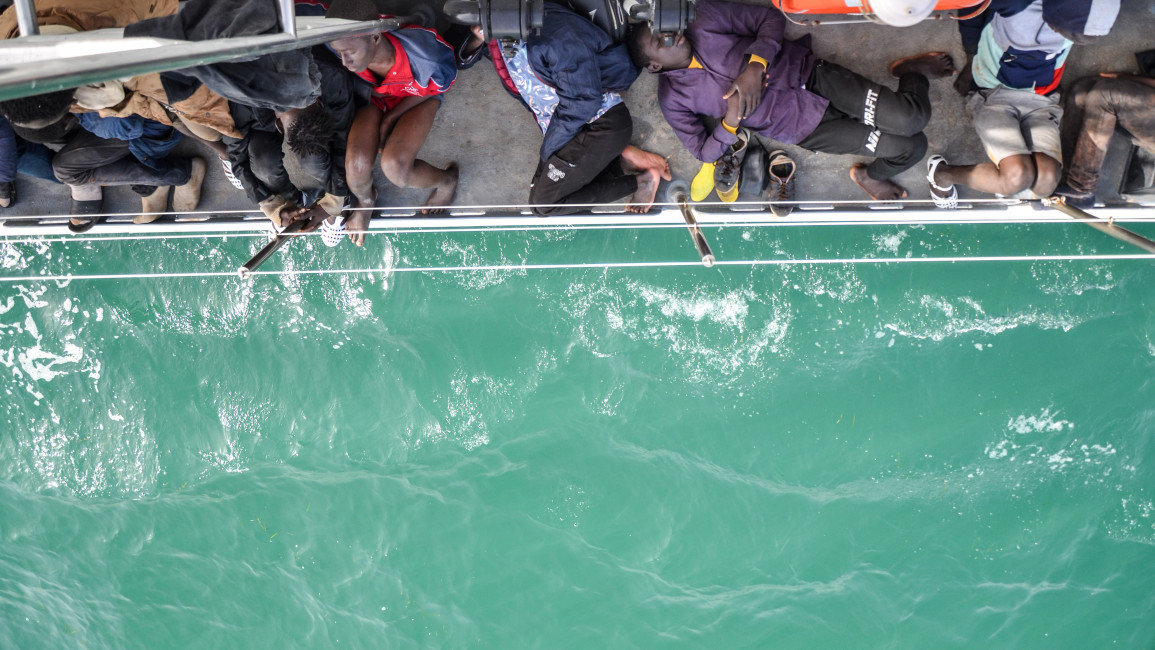Hundreds of African migrants face fatal pushbacks at Tunisian border: report
African migrants have spoken out about the harsh realities of facing expulsion from the Tunisian border, where many are forced into remote desert regions, resulting in death due to thirst.
Migrants from cities such as Sfax, Zarzis, Medenine and Tunis, said they were forced to head back into the desert between late June and late July, after attempting to cross the border, according to a report by The Guardian.
According to an intergovernmental organisation official, Tunisian authorities relocated more than 4,000 people in July alone to military buffer zones at the borders with Libya and Algeria, the report said.
Such claims contradict the statement of Tunisia’s interior minister, who conceded that only "little groups of six to 12 people" of sub-Saharan African migrants trying to enter the country were pushed back into the desert border areas.
Reports of migrants tragically losing their lives to extreme heat and thirst in the desert at the border first broke out in July, when photos began circulating on social media of Tunisian border guards pushing people from the border to the desert.
NGO group Refugees in Libya calculates that between 50 and 70 people have died of thirst in the desert due to the pushbacks by Tunisian authorities.
Amid the European Union’s migration deal with Tunisia, where €1 billion (£870 million) was given to Tunis to stem deadly irregular migration, many human rights groups, including Refugees in Libya, are calling on Brussels to take action after the deadly pushbacks.
Human Rights Watch (HRW) denounced the EU migrant deal with Tunisia on Thursday, branding the move as "terrible for human rights".
HRW added that such a decision was a disregard for "any specific human rights guarantee for migrants and asylum seekers", as well as the EU being made "complicit in abuses" that are conducted by Tunisian authorities.
Fear among African migrants was further stoked by Tunisian President Kais Saied’s controversial comments directed at Black African asylum seekers, who said in February that the removal of undocumented migrants from Tunisia was aimed at changing the country’s demographic composition.
Many activists and organisations such as the African Union had expressed their "deep shock and concern" over the statements made by Saied, labelling them as "racist".
The Chairperson of the African Union Commission @AUC_MoussaFaki strongly condemns the racial statements on fellow Africans in #Tunisia.https://t.co/9joF5kzhaY pic.twitter.com/7DQPkEYLkg
— African Union (@_AfricanUnion) February 25, 2023
As a result, xenophobic and racially discriminatory attacks targeting Black African migrants and students, as well as sackings and home evictions, had significantly risen following Saied's speech, where he also alleged that "hordes" of illegal migrants were the cause for increasing crime rates.



